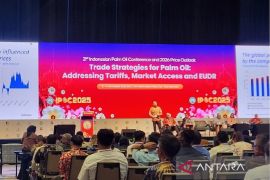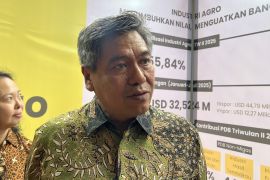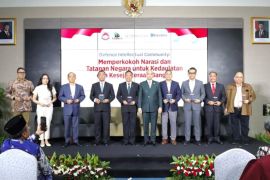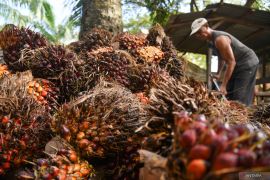The limitation is good for domestic availabilityJakarta (ANTARA) - Asia and the Middle East could become alternative markets for Indonesian palm oil export after the European Union implemented the Renewable Energy Directive (RED) II policy, an economist stated.
"It's like the Treaty of Hudaibiyah, it seems like it is detrimental to us, but in fact, it brings other benefits. The European Union may close the door, but non-traditional markets, such as Asia and the Middle East, are still open," economist at the University of Indonesia (UI) Fithra Faisal Hastiadi noted in a written statement here, Thursday.
He said barriers to the exports of palm oil and biofuel products from Indonesia could be good for the development of these products domestically.
"The limitation is good for domestic availability. We also need to develop downstream products," he said.
Related news: Astra Agro reaffirms commitment to sustainable oil palm plantations
Exploring non-traditional markets is deemed important for Indonesian palm oil production that is expected to increase further, with the establishment of a special directorate for palm oil under the Directorate General of Plantation at the Ministry of Agriculture.
Director of Trade Safeguard at the Directorate General of International Trade Negotiations, Trade Ministry, Natan Kambuno, revealed that the export value of palm oil products has shown a declining trend after implementation of the RED II policy by the EU.
"The export value has decreased, especially in the last two years. In 2020, the value was recorded at US$2.9 billion, then in 2021 it was US$2.8 billion," Kambuno said.
Related news: Palm oil price down 10% yoy in Aug: BPS
The RED II policy has been implemented by the EU since December 2018 that is considered discriminatory against Indonesian palm oil products.
The policy sets limits and categorizes biofuels made from palm oil as high Indirect Land Use Change (ILUC) risk, as it causes significant conversion of land with high carbon stocks into production areas.
In addition, the EU has imposed a gradual cessation of palm oil-based biofuels until 2030 known as Phase Out 2030.
The EU also set the limit for the use of food and feed crops-based energy for transportation to not exceed seven percent since 2020.
Related news: KJRI Kuching provides support for migrant workers' legality in Sarawak
Related news: BSN issues SNI on red palm cooking oil production
Translator: Aditya Ramadhan, Sri Haryati
Editor: Fardah Assegaf
Copyright © ANTARA 2022












